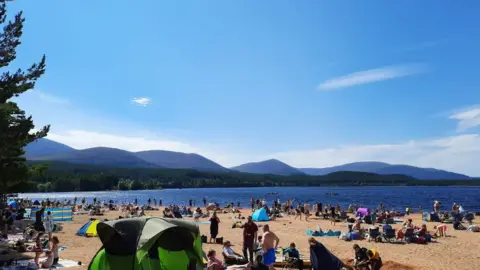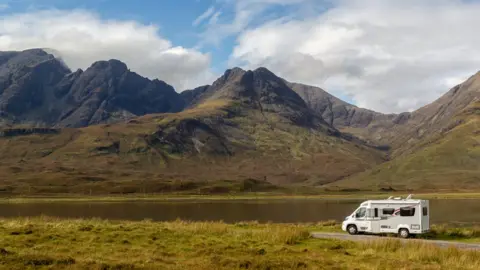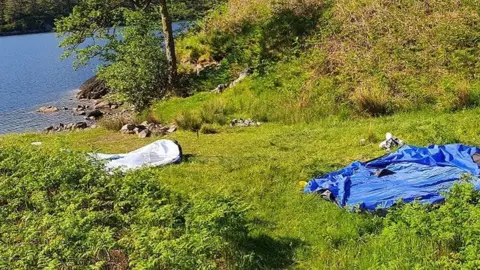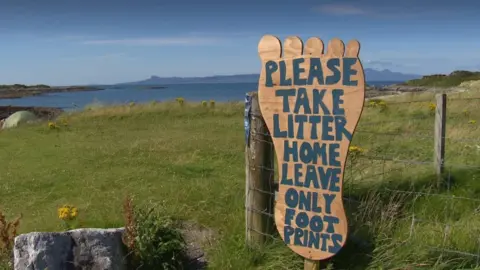Covid in Scotland: Post-lockdown tourism to Highlands 'unprecedented'
 CNPA
CNPAThe Highlands experienced "unprecedented" levels of tourism last summer, according to the local council.
Travel restrictions had been relaxed but hotels and campsites, public toilets remained closed due concerns about the spread of Covid-19.
Highland Council said popular destinations became overcrowded and there were problems with littering and outdoor toileting.
The authority has set out spending plans to help this summer's season.
The £1.5m visitor investment strategy includes £300,000 to cover the cost of 10 new seasonal rangers, £200,000 for motorhome facilities and £60,000 to improve and increase public toilets.
Tourism in the Highlands has been increasing over the last 10 years. Before the coronavirus pandemic, the region's six million annual visitors were worth an estimated £1.2bn and supported 20,000 jobs.
 Getty Images
Getty ImagesHotspots last summer included the north Sutherland coast, Lochaber and the Cairngorms National Park.
In a new report, Highland Council said visitors were drawn to the region by its "dramatic scenery" but also "the perception that there is plenty of space and a low incidence of the disease".
Finding campsites, hotels and B&Bs and other visitor facilities closed, some visitors set up camps anyway at beauty spots and roadsides before leaving behind rubbish and human waste.
 Police Scotland
Police ScotlandThe report said there was a "huge increase" in motorhome use and informal camping.
It said: "When confronted with closed campsites people used whatever site they felt was appropriate.
"There was overcrowding in popular spots leading to noise, litter, fires, vegetation damage, outdoor toileting, bad parking and other anti-social behaviour.
"Even away from popular camping spots there were insufficient parking areas, damage to roadsides, litter bins overflowed, toileting at roadsides and fire sites in many lay-bys."
Highland Council said a number of communities and land managers were "understandably upset and frustrated" by this behaviour.
According to the report, some communities responded positively and organised litter-picking patrols or left garden trowels in lay-bys so people could dig a pit and bury human waste.
But the report also said there were "negative" actions taken by some others, including gates being locked and car parks blocked.

Highland Council said significant spending on more infrastructure was needed, but this was a long-term objective.
Meantime, it has produced the £1.5m-worth of spending to try and help improve the experience this summer. The council said it would work with groups such as the Cairngorm National Park Authority on some of the plans.
The proposals include creating a network of continental Europe-style stopovers for campervans and caravans.
Known as Aires, the facilities are not campsites but offer basic essential services such as a place to stay overnight and waste disposal.
Highland Council has previously said it hoped they could be a "safe place" for some of the thousands of vehicles expected this summer.
The sites could also help tackle anti-social behaviour, such as waste being disposed of in lay-bys and streams.
In its new report, the local authority said it would look at branding and communicating this network of sites under a common name. Highland Council has suggested using the word airidh, which it said was "the rough Gaelic equivalent of aire".
